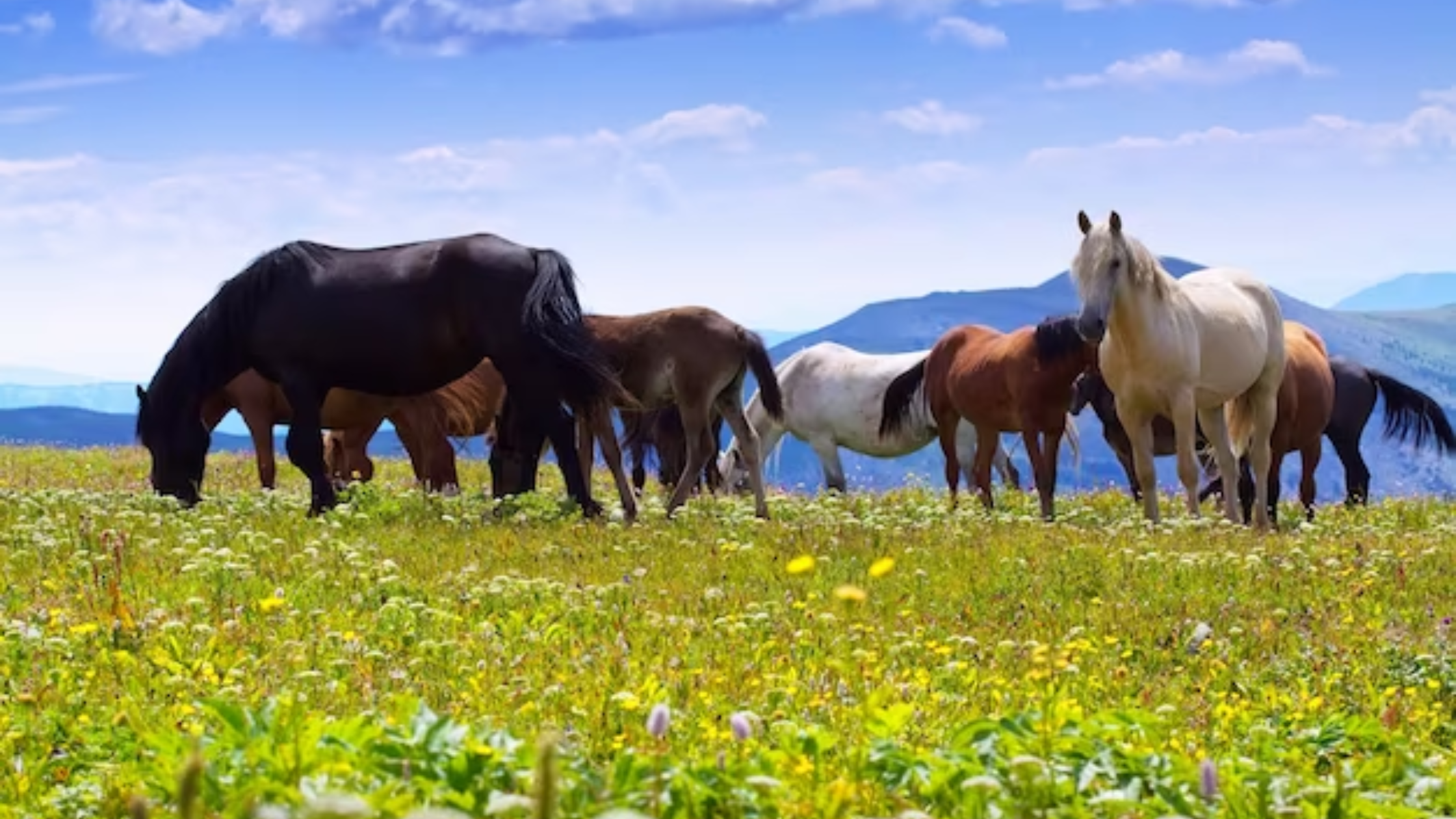Grass is one of the most abundant and essential components of the natural world, serving as a primary food source for numerous creatures. In this blog post, we will embark on an exciting journey to explore the fascinating realm of animals that have adopted grass as a central part of their diet.
The Significance of Herbivores in Ecosystems
Before we dive into the specific animals that eat grass, let's understand the crucial role of herbivores in maintaining the balance of ecosystems. Herbivores, also known as grazers, play a pivotal role in vegetation control. By consuming plants, they regulate plant growth and prevent overpopulation, allowing diverse plant species to thrive. This, in turn, impacts other animal species and the overall health of the environment.
Wild Animals that Eat Grass
1. African Elephants
African elephants, the largest land animals on Earth, are gentle giants that have a profound impact on their habitats. These magnificent creatures consume vast amounts of grass daily, shaping the landscapes they inhabit. Their grazing behavior helps maintain grassland ecosystems and creates pathways for other smaller animals to navigate.
2. Bison
Iconic symbols of the North American prairies, bison, or American buffalo, are formidable grazers. They rely heavily on grass as their primary food source, which significantly influences the health and biodiversity of the grasslands. Historically, bison herds played a crucial role in the ecological balance of the Great Plains.
3. Zebras
Found in the grassy savannas of Africa, zebras are renowned for their distinctive black-and-white stripes. These remarkable herbivores are well-adapted to graze on grasses, and their constant movement across the savanna helps maintain the equilibrium between vegetation and wildlife.
Domestic Animals that Eat Grass
1. Cows
Cows, as domesticated herbivores, are commonly associated with grass-eating habits. Their four-chambered stomach allows them to efficiently digest cellulose, a complex carbohydrate found in grass. Cattle farming relies heavily on grass pastures to provide proper nutrition for these animals.
2. Sheep
Sheep have been domesticated for thousands of years, and their grazing behavior is well-known to farmers and pastoralists. Their preference for grass and other plants makes them vital for pasture management and helps prevent the overgrowth of vegetation.
3. Horses
Horses are majestic creatures often associated with grazing in open fields. Their diet primarily consists of grass, which provides them with essential nutrients and sustains their energy levels. Horses' grazing behavior is essential in shaping pastureland and maintaining a balanced ecosystem.
Carnivores' Fascinating Grass Consumption
While most carnivores are primarily meat-eaters, some have been observed occasionally eating grass. This behavior has puzzled researchers for years, but it is believed to aid in digestion and provide additional nutrients.
Lions and tigers are among the well-known carnivores that occasionally exhibit this behavior. They may chew on grass or ingest it incidentally while consuming prey. Despite being carnivores, this peculiar trait highlights the complexity of their dietary habits and the interconnectedness of nature.
Grazing Habits of Animals in Different Environments
Animals' grazing habits vary based on the environments they inhabit:
1. Grasslands
Grasslands support a diverse range of herbivores due to the abundance of grasses. Animals like antelopes, wildebeests, and gazelles have evolved to thrive in these environments, where grass constitutes a significant portion of their diet.
2. Forests
Forest-dwelling herbivores, such as deer and moose, also graze on various types of grasses and plants available beneath the forest canopy. Their grazing behavior helps maintain the delicate balance between vegetation and wildlife in these ecosystems.
3. Mountains
Mountainous regions are home to unique grazers like mountain goats and yaks. These animals have adapted to graze on alpine grasses and herbs, allowing them to survive in challenging terrains.
The Importance of Grass in Animal Diets
Grass provides herbivores with numerous nutritional benefits. It is rich in carbohydrates, proteins, and essential minerals, offering the energy required for their daily activities. Additionally, the cellulose in grass is essential for herbivores' digestive processes, helping break down the plant material into usable nutrients.
Exploring the Harmony of Nature
In conclusion, the world of animals that eat grass is a captivating realm filled with diversity and ecological significance. From the majestic African elephants to the humble cows in our pastures, herbivores and their grass-eating habits play a vital role in maintaining the balance of nature. The fascinating behaviors of both wild and domesticated animals remind us of the intricate connections between all living beings in our natural world. So, the next time you spot an animal grazing on the green grass, take a moment to appreciate the harmony it brings to our ecosystem.

